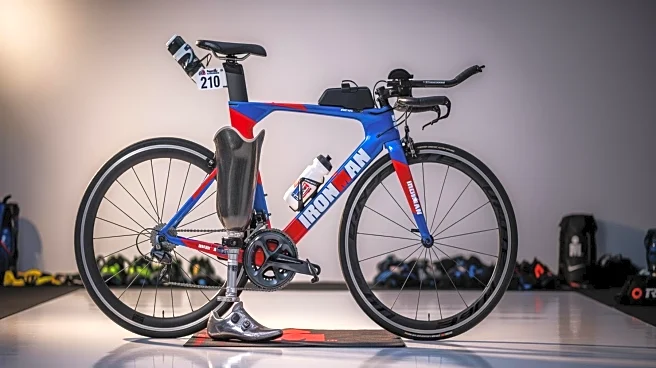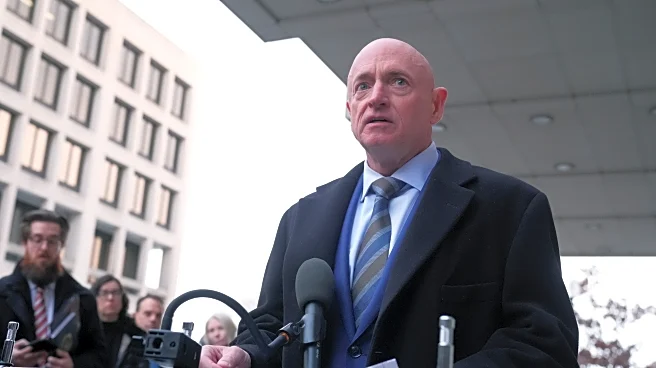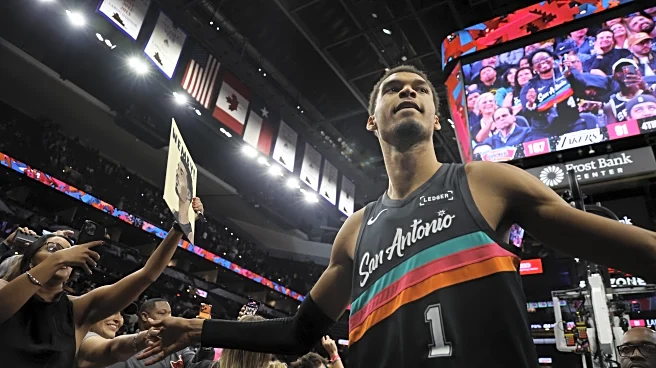What's Happening?
Boris Shtonda, a 28-year-old IDF veteran from Tel Aviv, is training for the Ironman triathlon despite losing his leg above the knee during combat in Gaza. Shtonda, who served with the Duvdevan unit, has
undergone 19 surgeries since his injury. He is currently preparing for the Ironman competition, which includes a 3.8 km swim, 180 km bike ride, and 42.2 km run. Shtonda's determination is evident as he completed a 4.5 km swim off Tel Aviv's shore and followed it with a long run using his prosthetic leg. He is part of the 'Step By Step' program by the 'In One Heart' charity, which supports wounded soldiers in achieving athletic goals. Shtonda is registered for the 'Half Ironman' in Valencia, Spain, as a stepping stone towards his ultimate goal of completing a full Ironman.
Why It's Important?
Shtonda's journey is a testament to resilience and the power of the human spirit. His story is inspiring for many, especially those facing physical challenges, as it demonstrates that significant obstacles can be overcome with determination and focus. The support from the 'In One Heart' charity highlights the importance of community and structured programs in rehabilitation and achieving personal goals. Shtonda's efforts not only serve as a personal triumph but also as a motivational example for others to pursue their dreams despite setbacks. His participation in the Ironman could raise awareness about the capabilities of disabled athletes and the importance of inclusive sports.
What's Next?
Shtonda is set to participate in the 'Half Ironman' in Valencia, Spain, on April 19, which he views as preparation for a full Ironman event. His ultimate goal is to compete in an Ironman in Hawaii or another scenic location. The training program, led by veteran Ironman champion Tom Marmarelli, provides comprehensive support including training, nutrition, and mental coaching. As Shtonda continues his preparation, he aims to inspire others to set and achieve their own athletic goals, regardless of physical limitations.
Beyond the Headlines
Shtonda's story raises broader questions about the support systems available for veterans and individuals with disabilities. It underscores the need for accessible rehabilitation programs and the role of sports in physical and mental recovery. His journey also highlights the potential for sports to serve as a platform for social change, promoting inclusivity and challenging perceptions about disability.











